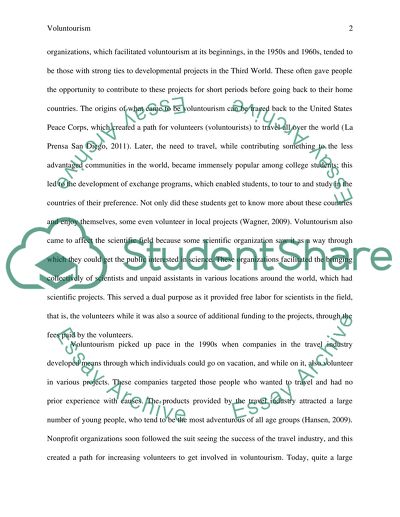Cite this document
(“Voluntourism Research Paper Example | Topics and Well Written Essays - 2250 words”, n.d.)
Voluntourism Research Paper Example | Topics and Well Written Essays - 2250 words. Retrieved from https://studentshare.org/geography/1462967-voluntourism
Voluntourism Research Paper Example | Topics and Well Written Essays - 2250 words. Retrieved from https://studentshare.org/geography/1462967-voluntourism
(Voluntourism Research Paper Example | Topics and Well Written Essays - 2250 Words)
Voluntourism Research Paper Example | Topics and Well Written Essays - 2250 Words. https://studentshare.org/geography/1462967-voluntourism.
Voluntourism Research Paper Example | Topics and Well Written Essays - 2250 Words. https://studentshare.org/geography/1462967-voluntourism.
“Voluntourism Research Paper Example | Topics and Well Written Essays - 2250 Words”, n.d. https://studentshare.org/geography/1462967-voluntourism.


